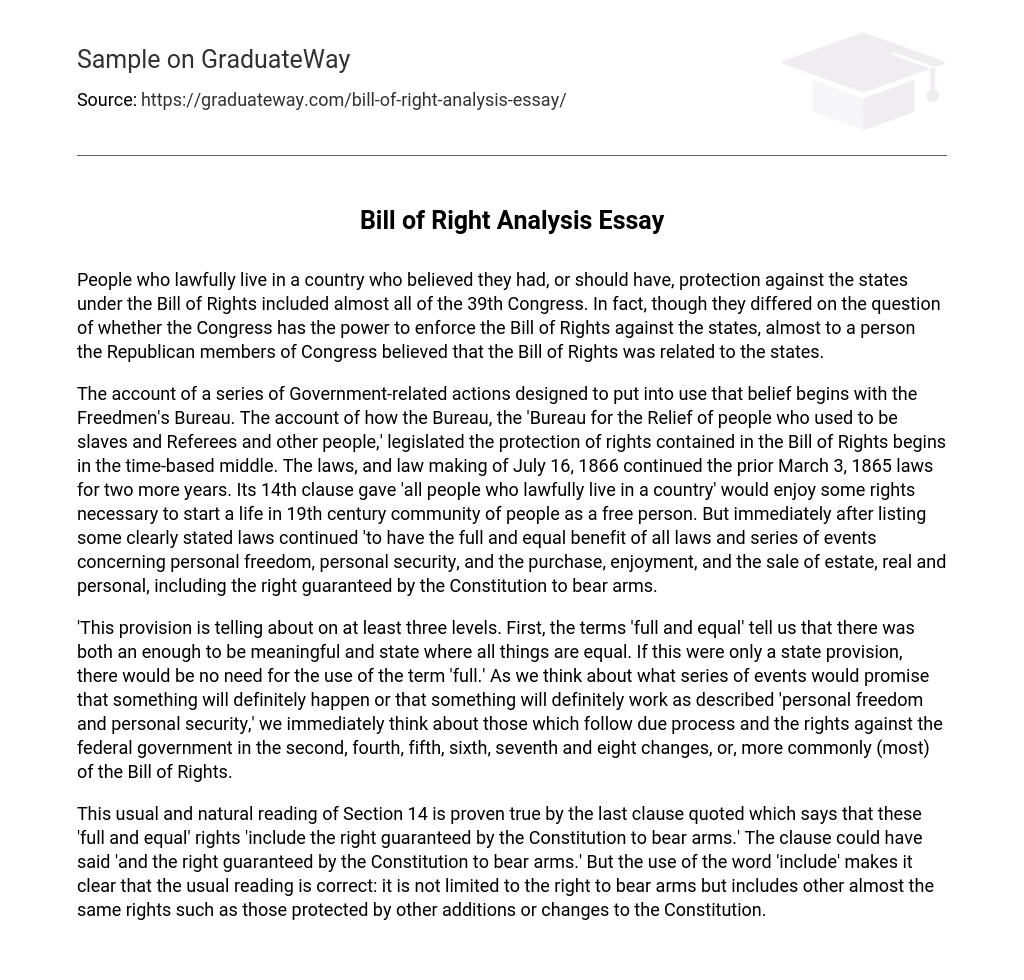People who lawfully live in a country who believed they had, or should have, protection against the states under the Bill of Rights included almost all of the 39th Congress. In fact, though they differed on the question of whether the Congress has the power to enforce the Bill of Rights against the states, almost to a person the Republican members of Congress believed that the Bill of Rights was related to the states.
The account of a series of Government-related actions designed to put into use that belief begins with the Freedmen’s Bureau. The account of how the Bureau, the ‘Bureau for the Relief of people who used to be slaves and Referees and other people,’ legislated the protection of rights contained in the Bill of Rights begins in the time-based middle. The laws, and law making of July 16, 1866 continued the prior March 3, 1865 laws for two more years. Its 14th clause gave ‘all people who lawfully live in a country’ would enjoy some rights necessary to start a life in 19th century community of people as a free person. But immediately after listing some clearly stated laws continued ‘to have the full and equal benefit of all laws and series of events concerning personal freedom, personal security, and the purchase, enjoyment, and the sale of estate, real and personal, including the right guaranteed by the Constitution to bear arms.
‘This provision is telling about on at least three levels. First, the terms ‘full and equal’ tell us that there was both an enough to be meaningful and state where all things are equal. If this were only a state provision, there would be no need for the use of the term ‘full.’ As we think about what series of events would promise that something will definitely happen or that something will definitely work as described ‘personal freedom and personal security,’ we immediately think about those which follow due process and the rights against the federal government in the second, fourth, fifth, sixth, seventh and eight changes, or, more commonly (most) of the Bill of Rights.
This usual and natural reading of Section 14 is proven true by the last clause quoted which says that these ‘full and equal’ rights ‘include the right guaranteed by the Constitution to bear arms.’ The clause could have said ‘and the right guaranteed by the Constitution to bear arms.’ But the use of the word ‘include’ makes it clear that the usual reading is correct: it is not limited to the right to bear arms but includes other almost the same rights such as those protected by other additions or changes to the Constitution.





